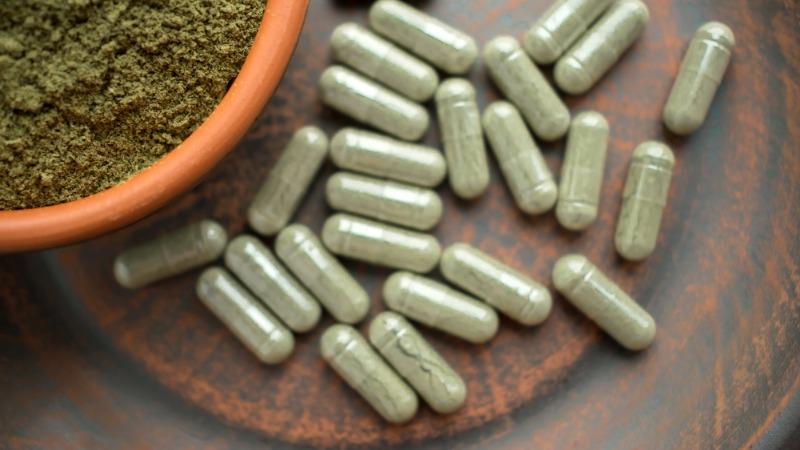
August 18, 2025
Across the country, more and more people are turning to kratom, believing it's a safe, natural alternative to prescription drugs. But kratom's effects on the brain and body can be unpredictable, and in some cases, deadly. Before you try it, here's what you need to know.
Kratom is a plant that grows naturally in parts of Southeast Asia. The leaves of the kratom tree have been used for hundreds of years in those countries, often to help with tiredness or pain. People there might chew the leaves, brew them into tea, or crush them into powder.
In recent years, kratom has become popular in the United States, despite not having proven safe indications. You can find it in common locations, such as your local gas station. It's usually sold as a green powder, in capsules, or as a tea. Some people use kratom to try to boost energy, help with pain, or manage feelings of sadness or worry. Others take it because they believe it helps them stop using other drugs, especially opioids.
While kratom comes from a plant, that doesn't mean it is always safe. It affects the brain and body in ways that can cause harm, particularly when used frequently or in excessive amounts.
How Kratom Works in the Body
Kratom leaves contain chemicals that affect the brain. In small amounts, kratom can act like a stimulant; giving people more energy and making them feel more alert. In larger quantities, it can have the opposite effect, making people feel sleepy, calm, or even numb.
The way kratom works is similar to some pain medicines, because it attaches to specific brain receptors. This is why some people use it for pain relief — but it is also, why kratom can be addictive and dangerous.
Risks and Dangers of Kratom
Addiction and Withdrawal
People who use kratom often can become dependent on it. This means their bodies feel like they need it to feel normal. If they stop suddenly, they may have withdrawal symptoms like muscle aches, trouble sleeping, mood swings, or feeling anxious.
Side Effects
Even small amounts of kratom can cause side effects. These may include nausea, sweating, dry mouth, loss of appetite, or constipation. Some people may also experience dizziness, confusion, or heart problems.
Serious Health Problems
In high doses, kratom can cause seizures, trouble breathing, or even death. The U.S. Food and Drug Administration (FDA) has warned that kratom is not approved as a safe medicine, and some kratom products may be contaminated with dangerous substances like heavy metals or bacteria.
Mixing with Other Drugs
Kratom can be especially dangerous when used with alcohol, prescription medicines, or illegal drugs. Combining these substances can intensify their effects and increase the risk of serious harm.
Young People
Teens and children should never use kratom. Their brains and bodies are still developing, and kratom can affect memory, decision-making, and emotional health. Using kratom at a young age also increases the risk of addiction later in life.
Staying Safe
If you or someone you know is using kratom, it's essential to talk to a trusted adult, doctor, or counselor. Help is available, and stopping early can prevent long-term health problems.
Remember: Just because something is "natural" doesn't mean it's safe. Learning about the risks of kratom can help you make healthy choices and protect your future.

Kyle Moore, DO is a family medicine practitioner at St. Peter’s Health who specializes in addiction medicine. He is a board-certified member of the American Board of Family Medicine and the American Board of Preventative Medicine-Addiction Medicine.
